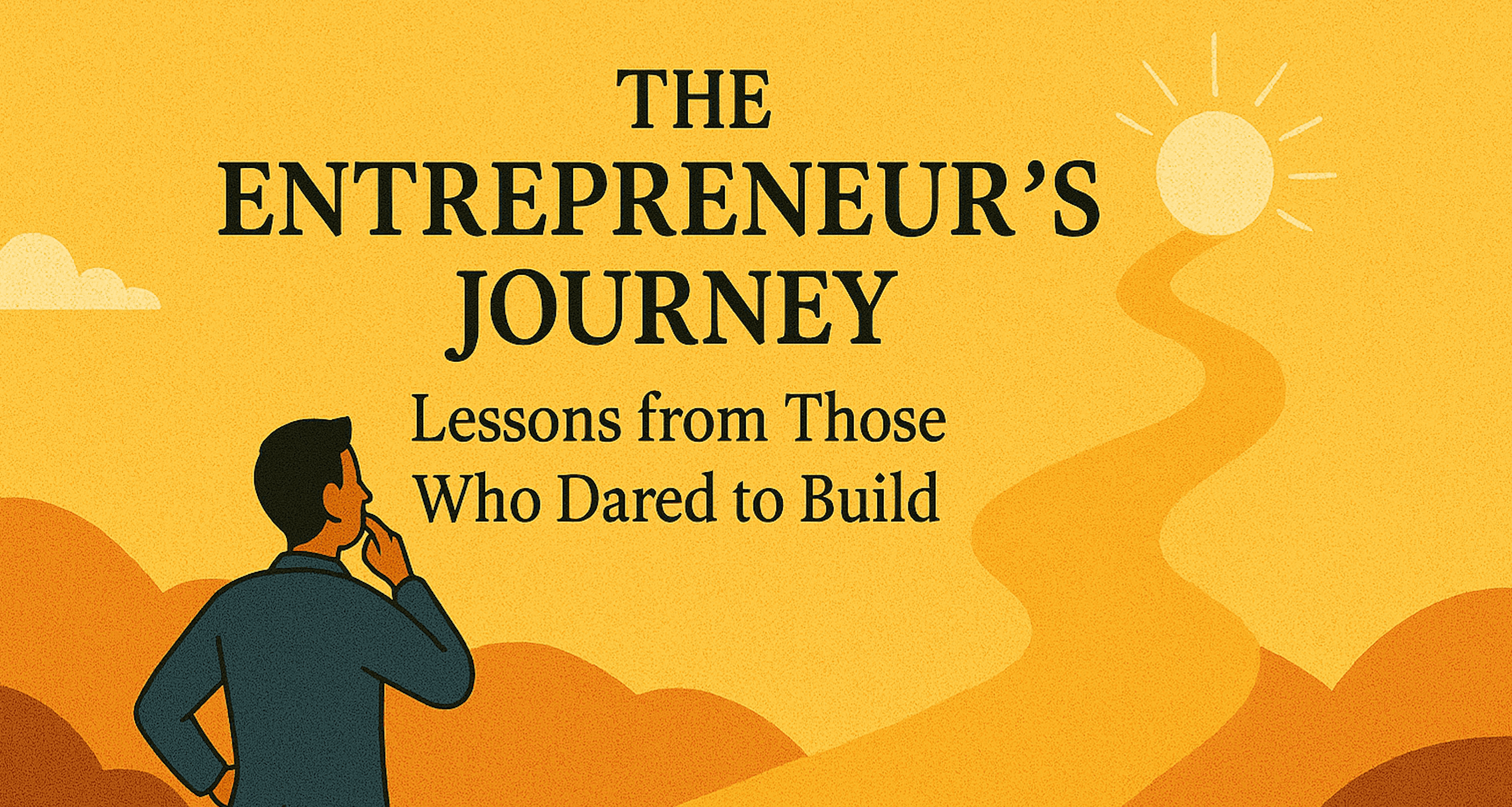
The Entrepreneur’s Journey: Lessons from Those Who Dared to Build
Entrepreneurship is often romanticized as the bold pursuit of an idea, fueled by passion and destined for success. In reality, the journey is far more complex—marked by uncertainty, resilience, and constant adaptation. Yet, for those who embrace the challenge, the rewards extend far beyond financial success.
From first-time founders to seasoned entrepreneurs, certain fundamental principles define those who turn their visions into reality. What separates the dreamers from the doers? Through analyzing patterns of successful founders, three key lessons emerge:
1. Start Before You’re Ready
Many aspiring entrepreneurs wait for the “perfect moment” to launch their venture. But as history shows, some of the most transformative companies were built under far-from-ideal conditions.
Consider Airbnb: in 2007, its founders, Brian Chesky and Joe Gebbia, couldn’t afford rent in San
Francisco. Instead of waiting for the ideal business climate, they rented out air mattresses in their apartment, unknowingly igniting the $100 billion home-sharing industry. Their early iteration was far from polished, but it allowed them to test demand and refine their model.
The key takeaway? Perfection is the enemy of progress. Entrepreneurs who move forward, even with incomplete solutions, are more likely to succeed than those who overanalyze and delay.
2. Resilience Outweighs Intelligence
Smart people start businesses every day, yet intelligence alone is no predictor of success. The true differentiator is resilience—the ability to adapt, persist, and recover from setbacks.
Take the story of Howard Schultz, who pitched the Starbucks expansion idea to over 200 investors before securing funding. Or Elon Musk, who poured his last dollars into Tesla and SpaceX when both companies were on the verge of collapse in 2008. Today, their brands have reshaped industries.
Entrepreneurs must develop a high tolerance for failure and view obstacles as data points rather than deterrents. Every rejection, pivot, and setback is an opportunity to refine the business model and strengthen conviction.
3. Customers Are the Ultimate Investors
While venture capital funding is often seen as the gold standard for success, the reality is that the best companies are those built around real customer demand.
Amazon, Microsoft, and Dell all started as bootstrapped businesses, using revenue from early customers to fuel growth. This customer-first approach forces entrepreneurs to focus on delivering value rather than chasing investor validation.
In a world where funding rounds make headlines, it's easy to forget that a paying customer is the best form of investment. Founders should obsess over solving problems so well that customers willingly pay—because when that happens, growth capital becomes a byproduct, not a prerequisite.
Final Thoughts: The Future Belongs to the Builders
In a time of rapid technological change, the need for entrepreneurs has never been greater. Markets are shifting, industries are being redefined, and those who can identify opportunities, act decisively, and persist will shape the future.
The journey of entrepreneurship is not for the faint of heart. But for those willing to take the leap, adapt, and relentlessly execute, the rewards—both personal and professional—are immeasurable.
Are you ready to build?